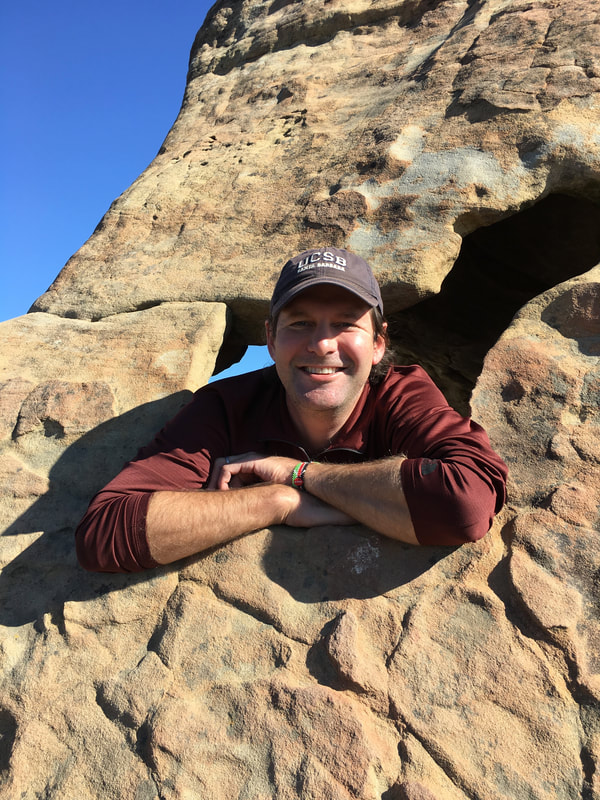The definition of ecohydrology, which I will not attempt, is separate from its meaning to me. For me, ecohydrology meant - and still means - a personal pathway forward in the sciences. During my PhD work, I was a small part of a massive field campaign. Everywhere I looked someone was doing something I was interested in way better than I could ever hope to. It was deflating. But I continued to dutifully count and map my savanna trees hoping I’d figure out what I was “really working on”. I also spent a fair amount of time sitting under some of these same trees questioning my decision-making and wondering if there was any University I could transfer to where you could get a PhD in tree counting. At some point, I had the realization that my new-found interest in “figuring out what the hell was going on, under savanna tree canopies” could just be re-packaged as “figuring out what the hell was going on under savanna tree canopies”. I got back from the field and threw myself into the study of spatial patterns, surface hydrology, and vegetation ecology. In ecohydrology, I had found an intellectual crack into which I could throw down roots.
What are your undergraduate and graduate degrees in?
Both my undergraduate and graduate degrees are from the University of Virginia, in Environmental Science.
How did you arrive at working in/thinking about ecohydrology?
The most formative experience in my professional life was the seminar that Ignacio Rodriguez-Iturbe gave at the University of Virginia when I was about two years from finishing my PhD. At that time, Ignacio was working with Francesco Laio, Luca Ridolfi, and Amilcare Porporato on a four-part series of classic papers that would appear in Advances in Water Resources in 2001. Ignacio’s seminar was like a lightning bolt: It was intensely illuminating, awesome in its power, and… it was very loud. I barged into his scheduled meeting with my PhD Advisor, Hank Shugart, and essentially demanded to know what sort of wizard he was that had - sight unseen - turned all of my notebook doodles and sketches into analytical solutions of stochastic differential equations. He generously invited me to collaborate with him and later - despite his otherwise good judgement - offered me a postdoc. Most importantly he has been a good friend, dear colleague, and outstanding mentor for almost two decades.
What do you see as an important emerging area of ecohydrology?
What initially drew me to ecohydrology was the opportunity to marry the technical and empirical depth derived from hydrological sciences with the beauty and elegance of ecological theory and experimentation. I still think that sort of work is critical to fueling our intellectual minds and my desire for better questions still outweighs my interest in better answers. But I have also become increasingly interested in the application of ecohydrological approaches to solving problems with both immediacy and specificity. There are many excellent areas emerging in ecohydrology related to responses of organisms and ecosystems to climate change, applications to landscape and species conservation, and linkages to preserving critical ecohydrological services. These areas are increasingly able to make direct contributions to the sustainable management of our landscapes, and I can’t think of anything more important than that.
Do you have a favorite ecohydrology paper? Describe/explain.
Picking favorites is hard, and I’m reluctant to do so. But I will say that the work of Dave Breshears has always been important to me (see example here). Effective scientific communication (and here I am speaking of research articles, not tweets) is extremely difficult, particularly when working across disciplines. I hammer the importance of writing well to all of my students. Unfortunately, my efforts lack consistency in this regard, but I can pick up almost any paper of Dave’s and use it as a teaching tool for what works in a field where it’s easy to fall into bad habits.
What do you do for fun (apart from ecohydrology)?
I enjoy hiking and camping a great deal. Cooking is fun enough for me that I once taught an undergraduate “science of food” course with a chef. I would also say I enjoy gardening, but in Santa Barbara that is essentially applied ecohydrology, so I can’t include it. I find that academics (at least this one) are pretty good at handling delayed gratification and I am usually in the middle of two or three projects related to boat building, car restoration, or some other decadal-scale activity.

 RSS Feed
RSS Feed